PMP4: Fourth Meeting of the Policymaker Platform
The fourth meeting of the Climate Recon 2050 Policymaker Platform (PMP4) took place in Berlin, at the Ecologic Institute. The two-day workshop took place in the run up to the 1st January 2020 deadline for the submission of the national-long term climate strategies. It is a crucial time in which a vast majority of EU Member States are defining, designing, refining and finalising their long- term climate strategies. At the same time, decision-makers can start looking beyond the immediate deadline towards implementation issues and a future process of alignment.
The workshop started with a round of updates on national long-term climate strategies development, with participants sharing the latest developments in their countries.
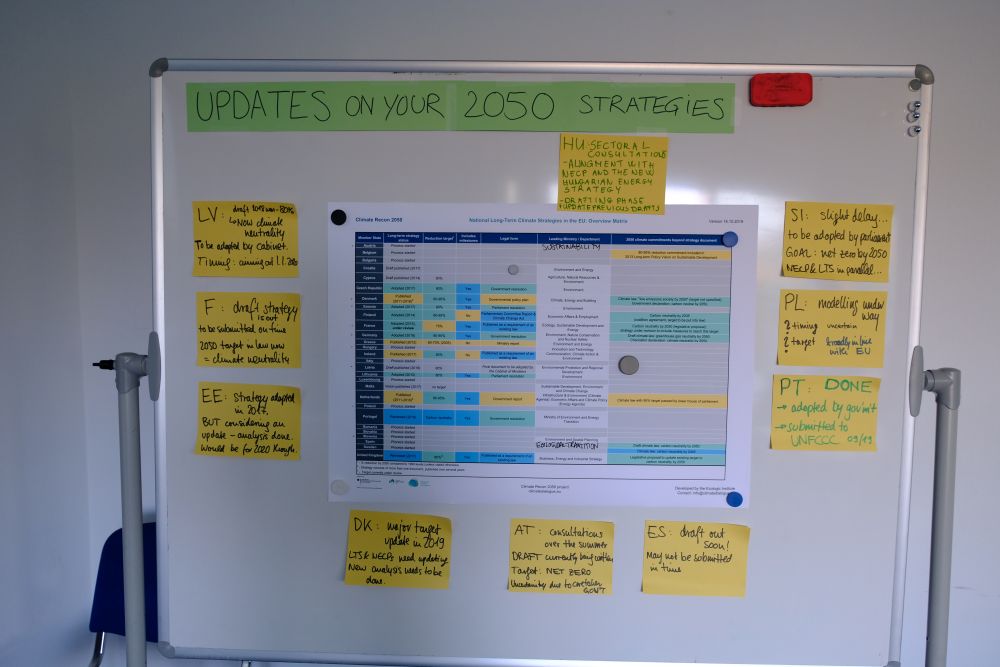
The opening content session focused on long-term climate governance frameworks (see also here) as well as the topic of climate laws. The participants discussed what are the core elements for implementing strategies after adoption. The theoretical considerations were illustrated by examples of existing and planned governance frameworks and climate laws from around Europe shared by the workshop's participants (including detailed inputs from France and Germany on their existing, and newly planned climate laws), complemented by additional case studies and a deep-dive comparative analysis of national climate laws.
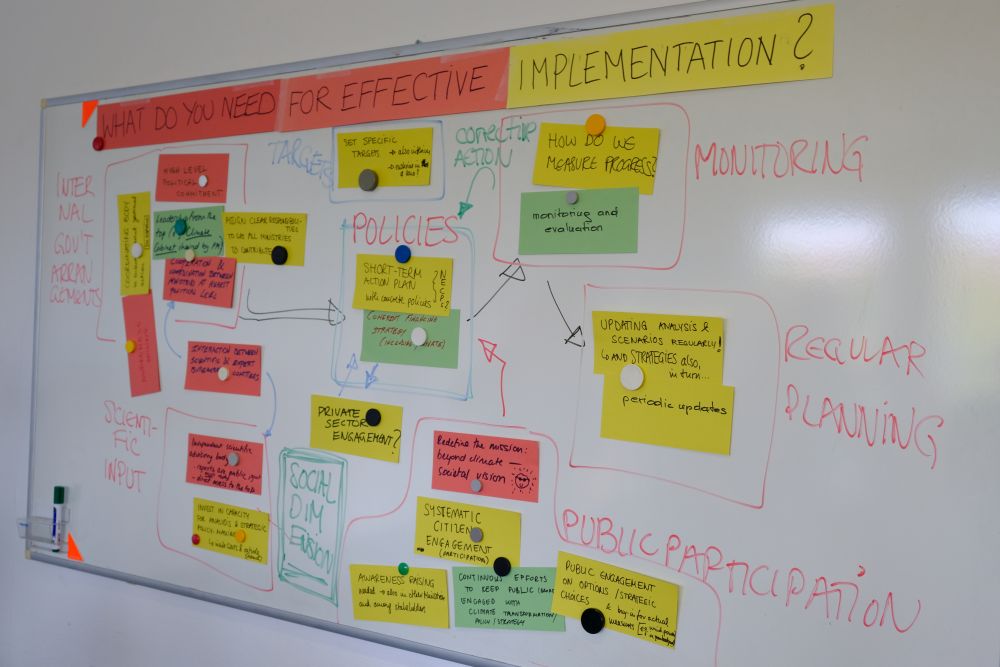
The policymakers engaged in lively debates on the pros and cons of enshrining climate targets and governance elements in national legal frameworks.
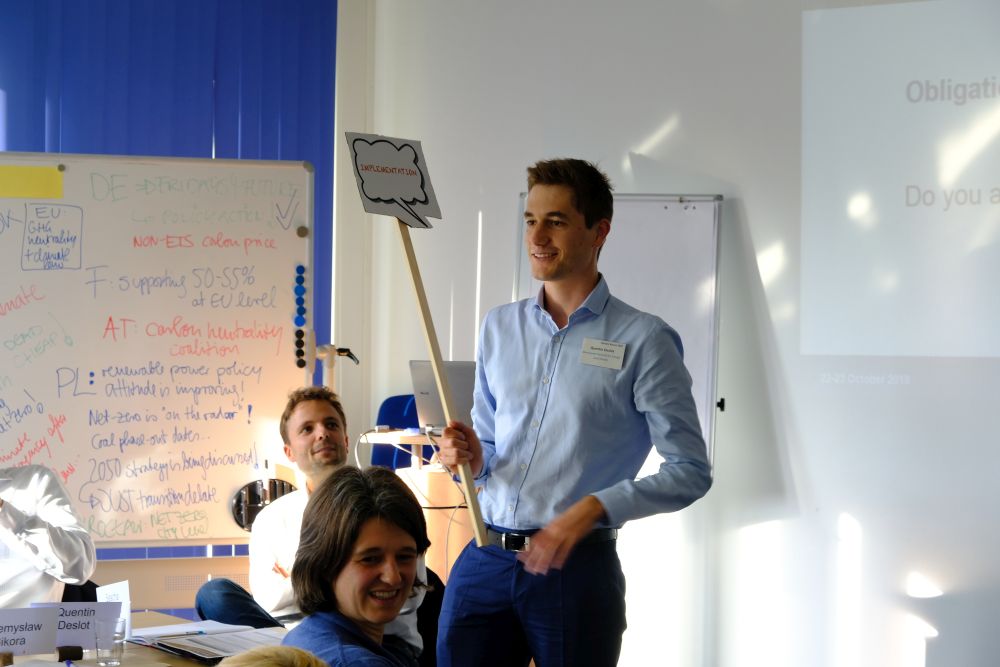
Negative emissions technologies were a key technical topic discussed during the workshop. Experts from Climate Recon 2050 community (Lukas Emele, Öko Institut and Vicki Duscha, Fraunhofer ISI) provided initial input in form of insights from comparative analysis of scenarios underlying selected existing national strategies, as well as observations on negative emissions options considered in the different scenarios underlying the EU 2050 vision document "Clean Planet for All". National representatives discussed the key reasons and sectors behind remaining emissions in their national scenarios; the role different negative emissions options including LULUCF and CDR technologies play in national considerations and what are the political discussions that surround different options.
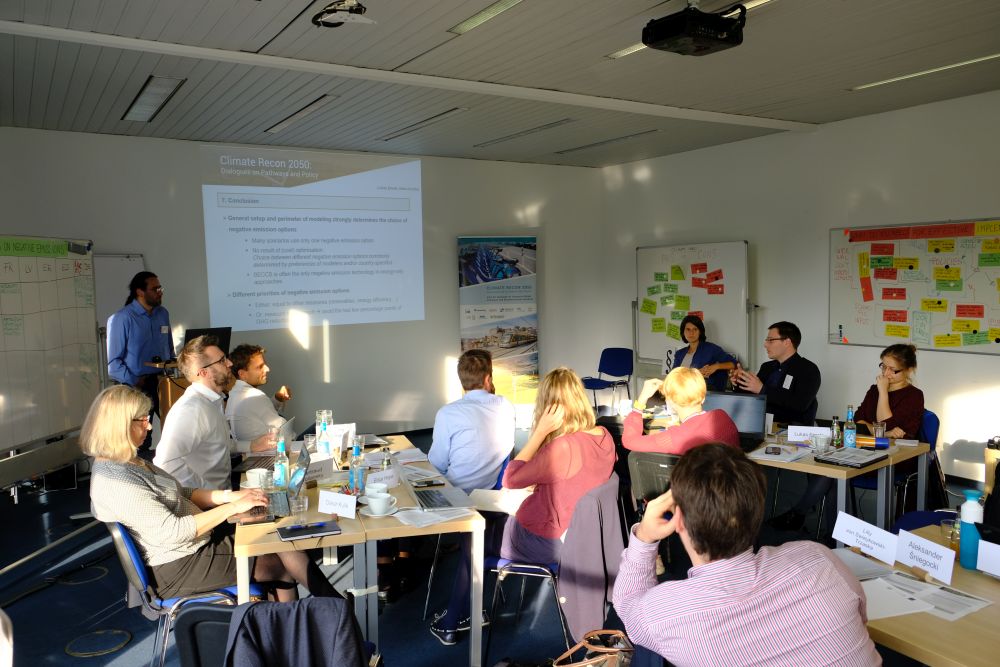
The second day of the workshop began with a session on tools and strategies to create and communicate positive narratives of long-term low-carbon transition, and effectively engage various stakeholders with the content and requirements of the 2050 climate strategies. The session included inputs from three external experts: Carel Mohn from klimafakten.de/Clean Energy Wire discussed strategies for communicating about climate change and climate action to different audience groups. Oskar Kulik from WWF Poland presented "Ecopatriots" a public communication campaign in Poland that aimed at making climate change a topic of political and public debate across political spectrum. Finally, Elena Stecca from CDP discussed the activities of "Commit to Action", a programme aimed at catalysing bold climate action and leadership of businesses across the world.
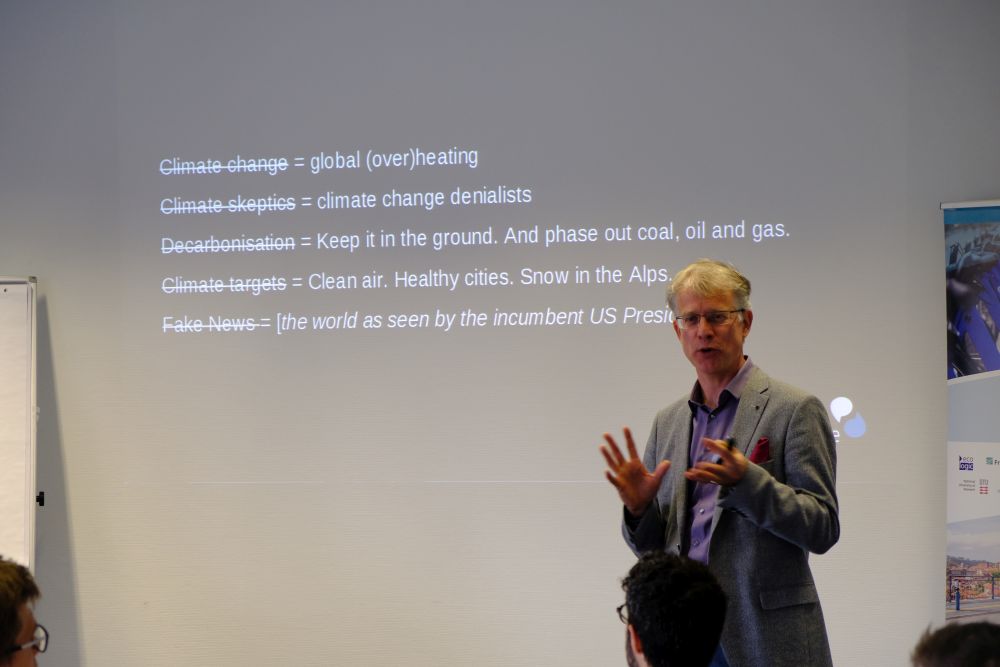
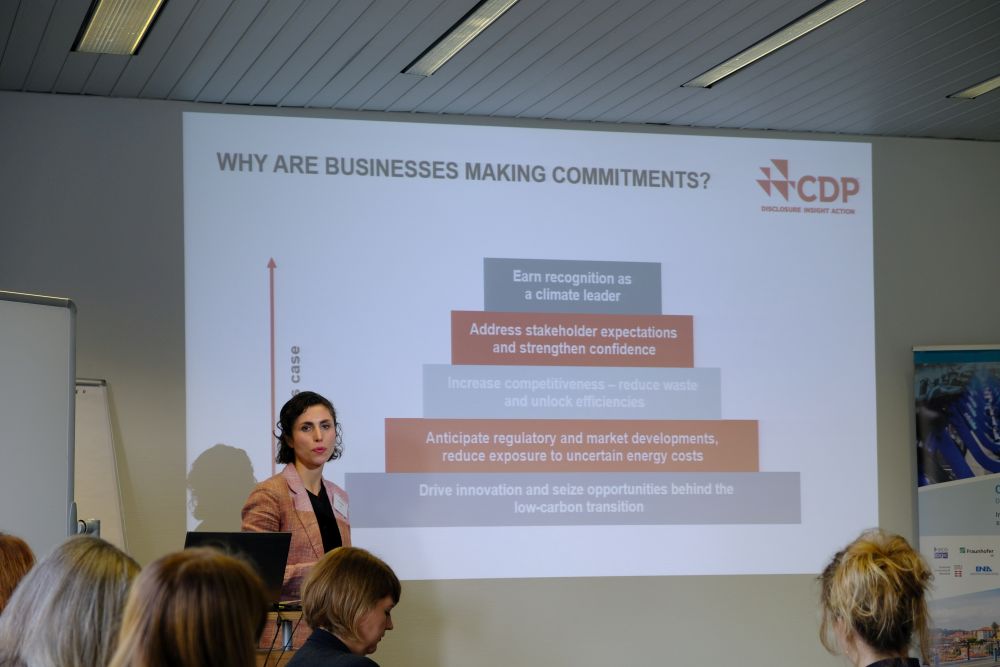
The presentations were followed by group discussions in which national representatives discussed the challenges and opportunities for communicating climate action and creating narratives of a low-carbon future in their respective national contexts.
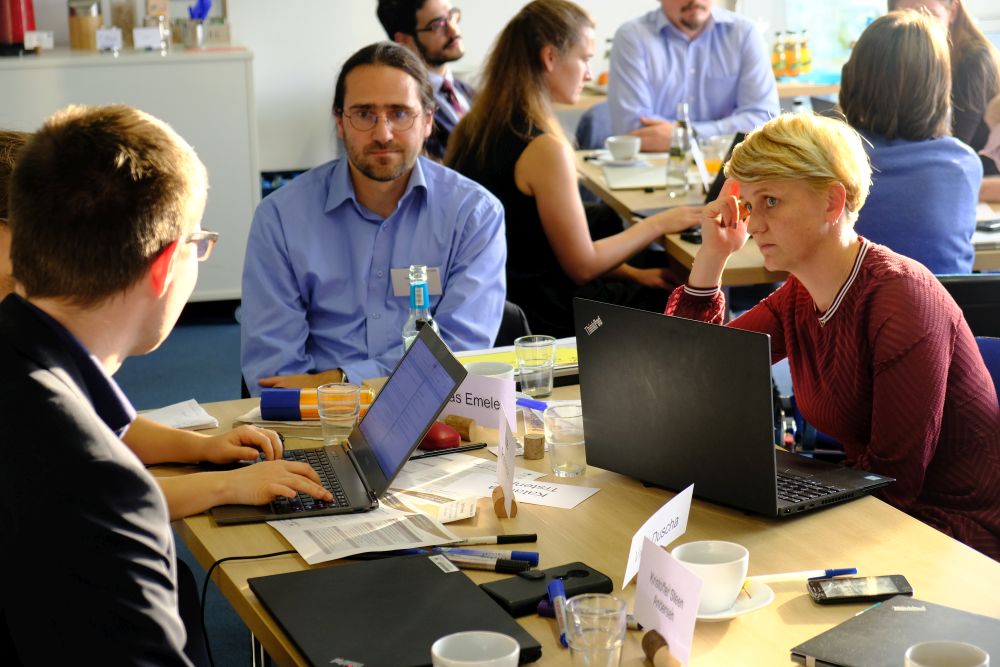
The workshop closed with a discussion on post-submission process: the participants discussed their expectations of the assessment process that will be undertaken by the European Commission after all the national strategies have been submitted. In the discussion the national representatives highlighted the key elements of such an assessment that could prove helpful and useful in the ensuing process of aligning the national and EU strategies and that could enhance national implementation processes.
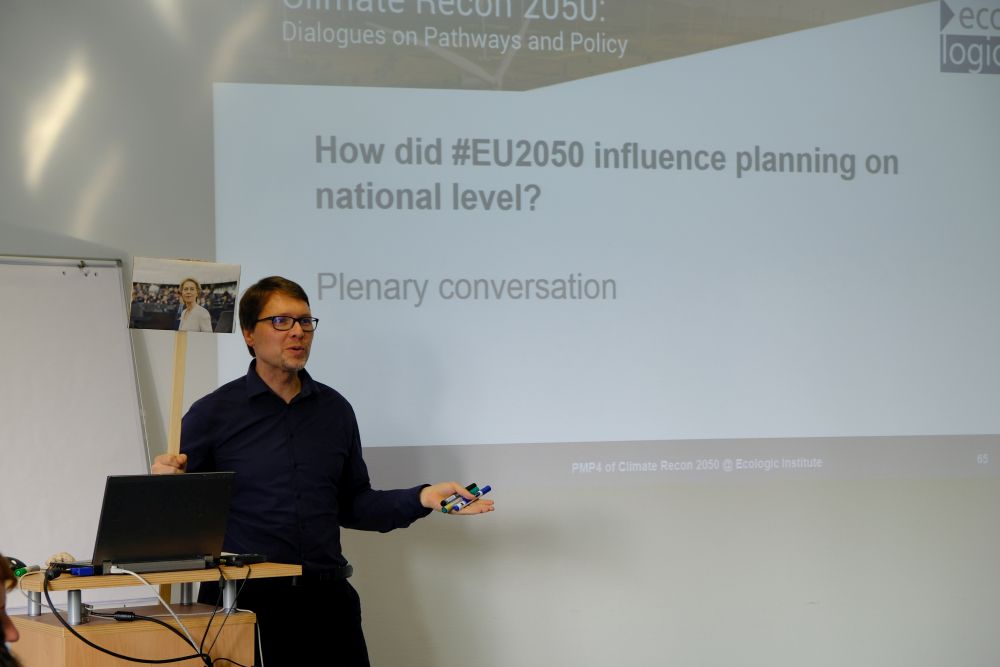
Climate Recon 2050 workshops bring together representatives from governmental agencies and technical experts of different Member States who are (or have been) involved in the process of drafting and implementing their national long-term climate strategies. The workshop’s purpose is to act as a forum for exchange on experiences gained and lessons learnt - to foster an intra-European dialogue on the core issues of 2050 decarbonisation strategies.
We thank our funders (European Climate Initiative and the European Climate Foundation) for providing us with an opportunity to organise the workshop.
